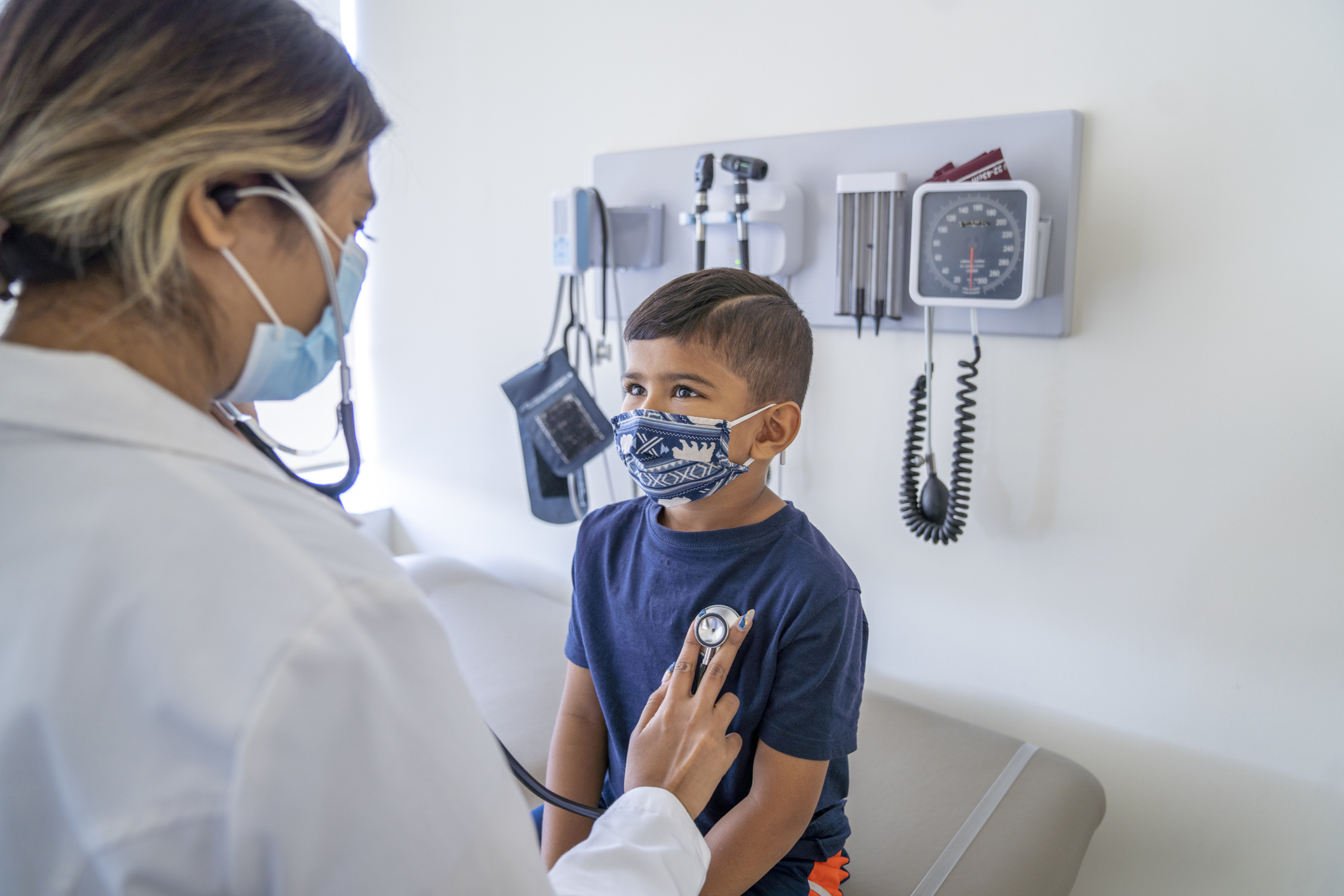





Family Health
6 Ways to Ensure a Happier, Healthier Back-to-School
Published: Aug. 3, 2022

The big countdown is on! With just a few days left until the start of another school year, now is the time to start checking off your healthy back-to-school to-do list. School clothes and supplies aren’t the only things your child needs to kick off another successful school year.
Here are the top six health tips Methodist health care providers want you to have before the first day arrives:
1. Get a Back-to-School Physical (and Sports Check-up)
An annual well check is the best way your child’s health care provider can keep tabs on their vital signs and growth progress.

“Well visits give us the opportunity to do so much in the way of teaching and education,” said Matthew Gibson, MD, a pediatrician at Methodist Physicians Clinic. “We can see if are they growing and developing normally and what can we do to set parents and children up for success.”
“We do a general physical exam to pick up on any red flags such as heart murmurs,” said Jessica McCool, MD, a family medicine provider at Methodist Physicians Clinic. “The nurses do a vision screen and their vitals. We can also pick up on blood pressure abnormalities which are different in pediatrics.”
2. Assess Mental and Social Wellness
During an annual exam, your provider can also assess mental wellness and help parents find solutions for potential behavior problems that can impact a child’s ability to learn during the school year.
“You can pick up on some behavioral issues or talk about what’s going on between the parents and the kids,” said Dr. McCool. “I often ask kids about how school went last year and try to pick up on any red flags such as behavioral problems or bullying. General practitioners and family practitioners are often at the forefront of treating depression and anxiety, and if you or your child is seeing a physician once a year and has a good relationship, they may be more willing to talk about issues they are having.”
3. Address Dietary Concerns
Childhood obesity is a growing problem – on the rise from 7 percent of kids in 1980 to 18 percent in 2012. Making sure your child is getting the proper nutrients each day can help boost their brain power and help them become happier and healthier. While balanced school lunches can help during the day, home is where healthy eating habits are established.
“Increase the amount of nutritional, low-calorie foods – vegetables, fruits, low-fat dairy products, whole grains, lean meat, lean fish and legumes – and limit foods in high caloric density – fried foods, baked goods, sweets, cheeses or oil-based sauces,” said Elizabeth Walenz, MD, a pediatrician at Methodist Physicians Clinic Regency. “Sit down, turn off the television and be mindful of what you and your kids are eating. Pay attention to portion sizes as well.”
And remember to limit snacks. School-age children should have one small nutritious snack in the afternoon, such as frozen grapes, carrot sticks, or a turkey roll-up.
4. Encourage Proper Sleep
“Many times, leading up to the school year, students are likely staying up really late and mortgaging their sleep,” said Shane Stephenson, MD, a family medicine provider at Methodist Physicians Clinic. “We know that adequate sleep helps with everything.”

Problems linked to sleep deprivation at any age include irritability, anxiety, depression, chronic fatigue, hormonal changes, weight gain, chronic pain, suppression of the immune system, exacerbation of chronic health problems, and an increased risk of substance abuse.
So how can you get your summer-sleep kids back on a school schedule?
“Gradually move that bedtime to an adequate time and wake the child up on a school time schedule at least one week before school starts so that the child is acclimated well before the start of school,” said Dr. Walenz. “If a middle school child routinely goes to bed at 10-11 p.m. and wakes up at 10 a.m., start pushing the bedtime back by about a half hour for a few nights in a row and work to wake up around at least 8 a.m. to start the day. Waking up earlier will help a child to feel tired around their bedtime as well.”
5. Adjust Screen Time
Let’s face it. Kids watch a lot of TV and play with their electronics during the summer. But all that screen time adds up to idle brains. Now’s the time to limit the iPads and video games and get their brains recharged for the learning ahead. Shutting down the electronics and encouraging other types of activities that involve kids using their imaginations can also help sharpen their classroom focus.
“When media is not used appropriately, we can see less face-to-face time, less exercise and less outdoor free play,” said Dr. Walenz. “We can see difficulties with sleep and less family time overall. Studies show the more television a child watches before the age of 3, the increased likelihood of attention problems – not necessarily ADHD, but difficulty sustaining attention.”
A common trend in many households is the use of social media during late night or even overnight hours. This can cause people to not progress through their sleep cycles properly and fail to receive restorative sleep. And this can lead to excessive tiredness and negatively impact both mental and physical health.
"It's important for parents and children to talk about shutting off phones and devices at night so they can focus on getting a good night sleeps," Dr. McCool said. "I understand that many adults may need their phones near their bed for work purposes or to be available for their own family because I have to do this myself when I'm on call. But there isn't a good reason that a teenager needs to have their phone next to them while they're sleeping."
6. Hit the Books
Nothing expands a child’s imagination and love for learning like reading. Reading is important for a child’s cognitive development, language development and literacy, and social-emotional development. Research shows regular reading is also a proven important factor in contributing to kindergarten readiness and overall school success.
“More than anything, reading gives kids a chance to be exposed to different stories and the rest of the world,” said Dr. Gibson. “Kids are already curious. Books help them be more inquisitive and help them be more excited about the world. They ask questions and you get to be a part of what’s going on in their mind and how they are figuring things out. Books open the door to letting them be exposed to all that.”
Sometimes, it can be just as challenging for us parents to prepare the upcoming school year. But our kids count on us to give them the best shot at success – whether they like it or not. If you need more tips on how to prepare for the upcoming school year, talk with your child’s Methodist Physicians Clinic health care provider.

